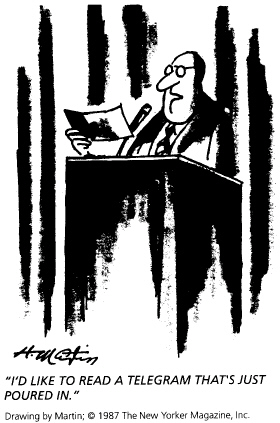Other
|
|
|
IDENTIFYING KEY TERMS
Use each key term below in a sentence that
shows the meaning of the term.
|
|
|
1.
|
lobbying
|
|
|
2.
|
public-interest group
|
|
|
3.
|
public policy
|
|
|
4.
|
public affairs
|
|
|
5.
|
propaganda
|
Multiple Choice
Identify the
choice that best completes the statement or answers the question.
|
|
|
MAIN IDEAS
|
|
|
6.
|
All of the following are examples of groups that promote causes EXCEPT
the
a. | American Civil Liberties Union. | b. | American Legion. | c. | National Rifle
Association. | d. | Sierra Club. |
|
|
|
7.
|
A labor union is an organization of workers who
a. | hold exactly the same political beliefs. | b. | represent the
interests of the business community. | c. | work in the same job or
industry. | d. | work on farms. |
|
|
|
8.
|
The term grass roots refers to
a. | trade associations. | b. | party politicians. | c. | average
voters. | d. | interest groups. |
|
|
|
9.
|
An interest group tries to persuade people to
a. | find ways to cooperate privately. | b. | nominate certain members for public
office. | c. | respond to its members' shared attitudes. | d. | join a political
party. |
|
|
|
10.
|
Trade associations usually represent
a. | farm workers. | b. | labor unions. | c. | non-profit
groups. | d. | the business community. |
|
|
|
11.
|
A positive aspect of interest groups is that they
a. | help stimulate interest in public affairs. | b. | eliminate the need
for factions in government. | c. | use propaganda to influence public
policy. | d. | have a strong influence on political parties. |
|
|
|
12.
|
All of the following are propaganda techniques EXCEPT
a. | presenting only one side of an issue. | b. | using glittering
generalities. | c. | supporting a government policy change. | d. | the bandwagon
approach. |
|
|
|
13.
|
One way interest groups become involved in the election process is by
a. | providing campaign funds. | b. | changing into a labor
union. | c. | having members secretly join political parties. | d. | nominating
candidates for office. |
|
|
|
14.
|
Interest groups are also called pressure groups mainly because
a. | they seek to put pressure on the government to affect policies. | b. | they put pressure on
individuals to join in the group's interests. | c. | belonging to a group can create pressure, or
stress, in one's life. | d. | they put pressure on group members to act in
certain ways. |
|
|
|
15.
|
Common Cause and the League of Women Voters are examples of
a. | private pressure groups. | b. | business groups. | c. | economic
groups. | d. | public-interest groups. |
|
|
|
16.
|
Most interest groups are formed on the basis of
a. | religious interests. | b. | economic interests. | c. | geographic
interests. | d. | the interests of all citizens. |
|
|
|
17.
|
Interest groups know that public opinion is important because
a. | laws cannot be passed in opposition of public opinion. | b. | no group can provide
enough information to alter public opinion. | c. | no policy will stay in place very long without
public support. | d. | a candidate cannot gain office without full public
support. |
|
|
|
18.
|
Single-interest groups try to affect elections based on
a. | which party is in power at the time. | b. | each candidate's stand, in regard to the
groups' interests. | c. | the candidate's party
affiliation. | d. | the broad views of all the candidates. |
|
|
|
19.
|
Lobbyists today are people who generally
a. | work within the governmental process to affect policies. | b. | work illegally to
get their group's needs met. | c. | use unfair propaganda to get a group's
point across. | d. | are hired by the government to support certain
policies. |
|
|
|
INTERPRETING POLITICAL CARTOONS
Use the cartoon to answer the
following questions.

|
|
|
20.
|
Who, most likely, is the speaker shown in the cartoon?
a. | an ordinary citizen | b. | a labor leader | c. | an interest group
leader | d. | a government official |
|
|
|
21.
|
What does the speaker mean by "a telegram that's just poured
in"?
a. | one with a message supported by many people | b. | one that arrived
suddenly and without warning | c. | one that is very forceful and
demanding | d. | one that came from a very long distance |
|
|
|
22.
|
What is the speaker probably going to talk about?
a. | one person's problem | b. | a new law | c. | an interest
group's issue | d. | his election |
|
Essay
|
|
|
CRITICAL THINKING
|
|
|
23.
|
Expressing Problems Clearly How could an interest group's policies
not be in the best interests of other Americans?
|
|
|
24.
|
Recognizing Cause and Effect How does our government's system of
checks and balances affect the work of interest groups?
|
|
|
25.
|
Determining Relevance How did the development of mass media relate to the
expanded use of propaganda?
|
|
|
26.
|
Identifying Assumptions What does the use of propaganda show about
propagandists' attitudes and beliefs about people?
|